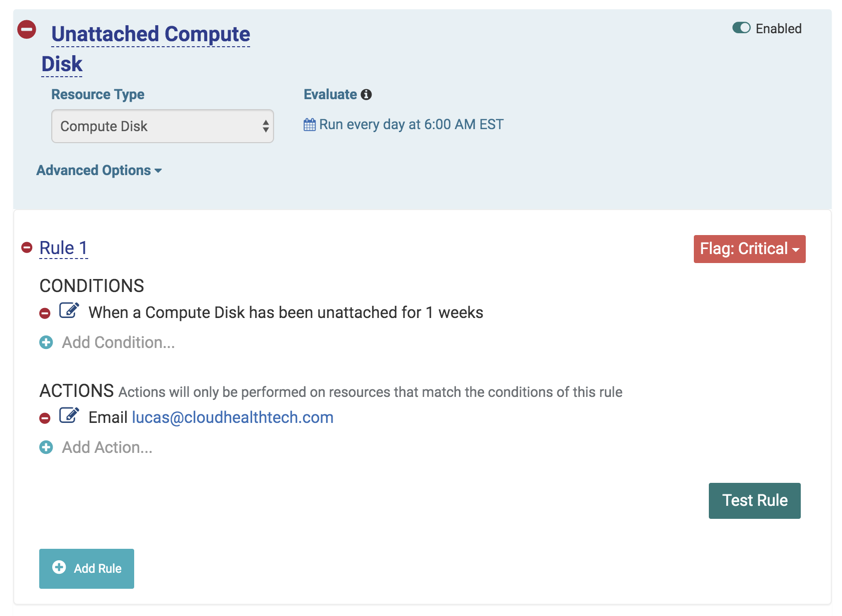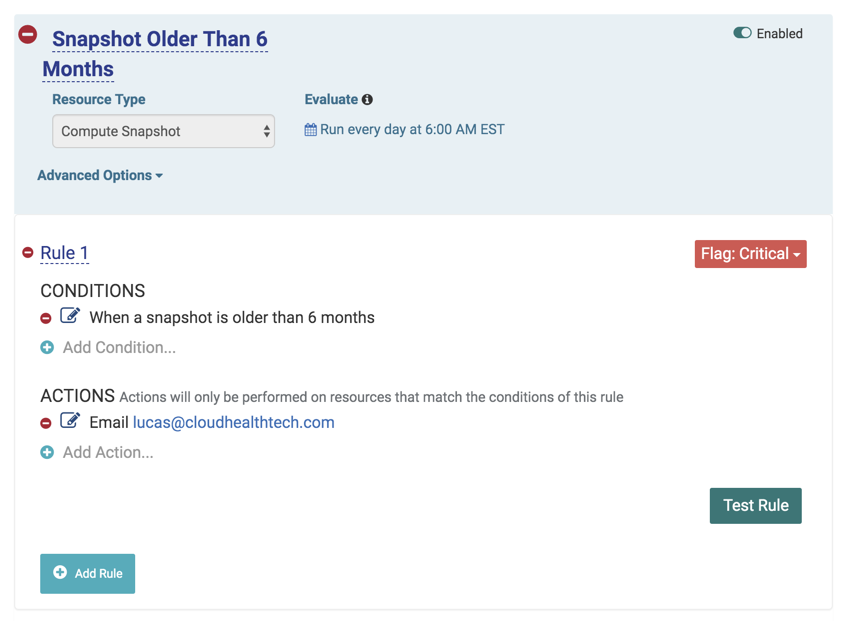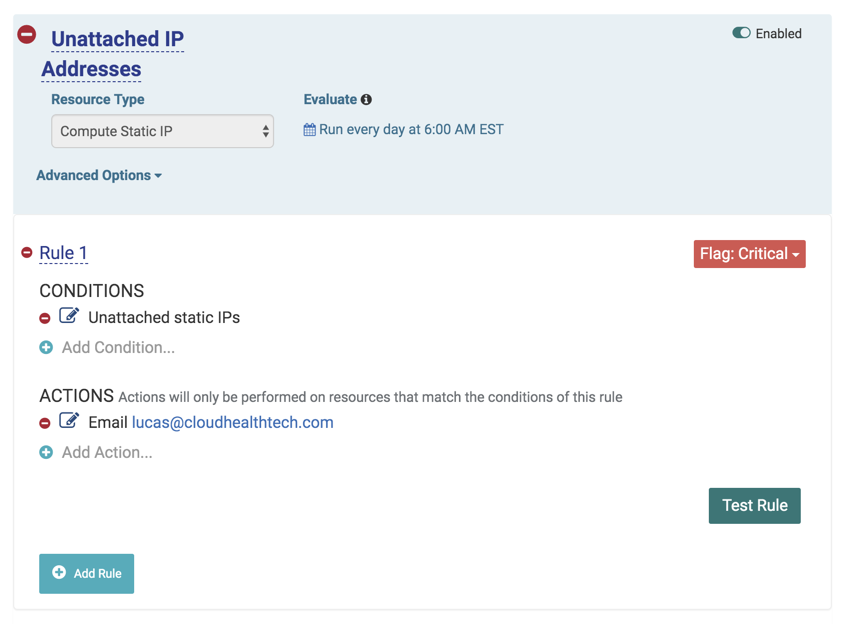topics
CloudHealth recommends adding the following GCP Best Practice Policies for Operational Governance.
Identify and Terminate Zombie Compute Disks
Compute disks that were launched with an instance but left unattached after the instance was terminated can cost you money. Automatically identifying which disks can be terminated helps reduce overall waste.
Example: Identify compute disks that have been unattached for more than 2 weeks and terminate them after confirming that they do not contain critical data.
Sample Zombie Compute Disk Identifying Policy: This policy identifies unattached compute disks and sends an email notification to an administrator.

Identify and Delete Old Snapshots
Compute snapshots can be valuable storage tools, but are often left forgotten and continue to incur cost as they age. Old compute snapshots can also become a legal liability when storing sensitive or regulatory data.
Example: Identify snapshots that are older than 6 months and terminate them after confirming that they do not contain critical data.
Sample Old Snapshot Identifying Policy: This policy sends a notification when it identifies potential zombie compute snapshots that are older than 6 months.

Release Unassigned Static IPs
Static IP addresses are assigned to virtual machines and remain assigned indefinitely until you manually release them. As a result, if you delete an instance, the instance's static IP continues to exist unattached until you release the IP. Because GCP charges for static IPs when they aren't assigned to an instance, this can result in an unexpected charge.
Example: Identify static IPs that are no longer assigned to a running instance.
Sample Release Unattached Static IP Identifying Policy: This policy identifies unattached static IPs and send a notification.
